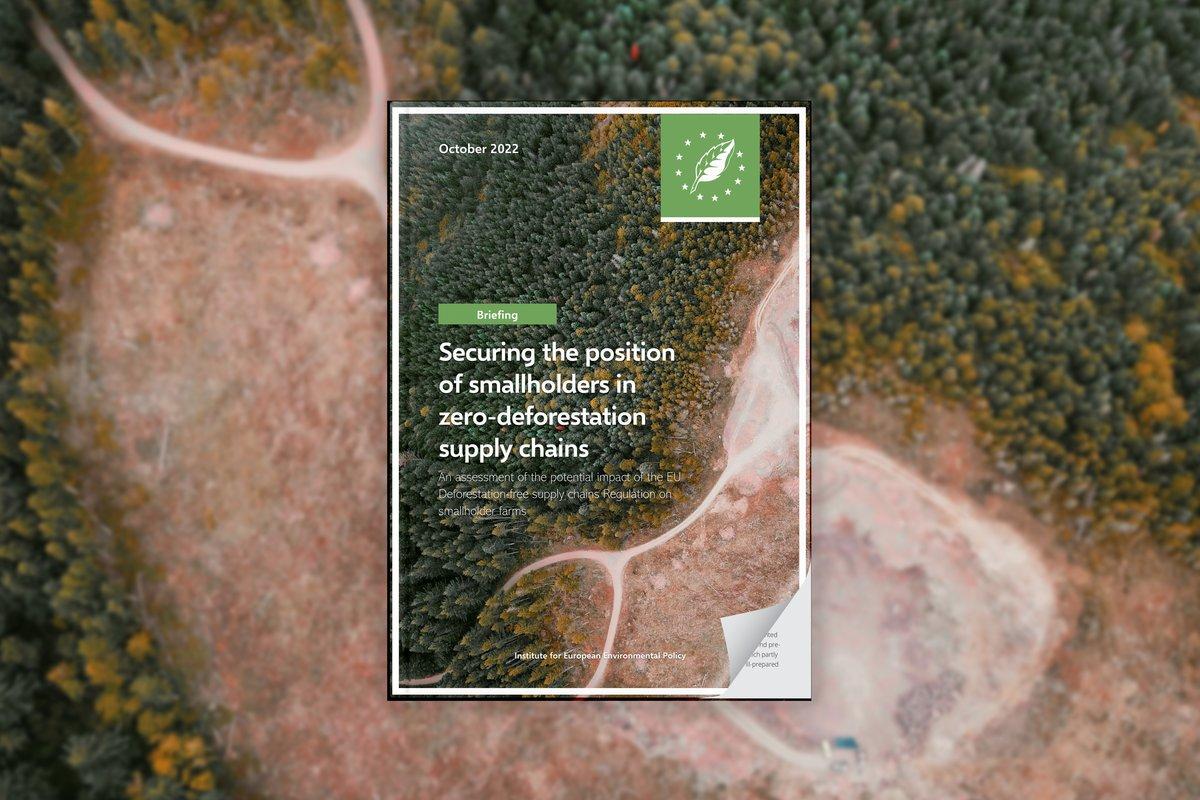AUTHORS: Nora Hiller, Eline Blot
The time for the EU to act and minimise its share of global deforestation is now. The Deforestation-free supply chains Regulation is vital to begin addressing the global spillovers of the EU’s unsustainable consumption patterns, and to achieve the SDGs. This briefing analyses the potential impact of the EU Deforestation-free supply chains Regulation on smallholder farms.
Over 80 million hectares of biodiversity-rich primary forest – approximately the size of Germany and Spain combined – have been destroyed since 1990. The main pressure on tropical deforestation and forest degradation has been agricultural expansion, most prominently driven by large-scale agricultural production of soybeans, palm oil and cattle, in addition to local subsistence farming.
Although primarily occurring outside its borders, it has been found that European demand for goods and services is responsible for 10% of global deforestation between 1990 and 2008. Indirect deforestation remains one of the EU’s greatest challenges regarding progress towards achieving the Sustainable Development Goals (SDGs), specifically the goals related to agriculture, dietary habits, biodiversity and climate action.
Under the European Green Deal, the European Commission published a proposal aimed at minimising the import and sale of products on the EU market that have contributed to deforestation. Yet, the effectiveness of the proposal will be determined by the Commission’s ability to withstand lobbying efforts to water-down the proposal and create of loopholes for certain producers.
The environmental objectives of the Deforestation-free supply chains Regulation are clear, however, the social implications risk impacting smaller farms disproportionately. The European Economic and Social Committee, NGOs and MEPs have called on the Commission’s impact assessment to consider the impact of the Regulation on smallholders producing the targeted commodities.
Indeed, smallholders supply a significant share of global production of some of the targeted commodities. It is estimated that worldwide, coffee smallholders supply around 60% of global coffee, while cocoa smallholders supply 80 to 95% of global cocoa production. However, for other commodities, the share of smallholder output exported for global consumption is rather negligible. For example, India and China count 45 million soybean-producing smallholders, yet this production of soy is primarily meant for the domestic markets.
This briefing provides the reader with a basis of understanding on what kind of farms are considered smallholders and why policy debates around smallholders are often left with ambiguous conclusions (due to a lack of data). Then based on the available literature and data, this briefing estimates how many smallholders could be impacted by the Deforestation-free supply chains Regulation. Finally, this briefing presents a set of recommendations to ensure that smallholders are both not disproportionately impacted and are able to reap benefits associated with the Regulation.
Given the number of smallholders affected by the Regulation outside the EU and the required efforts to both define and map out smallholders in a fair manner, as well as setting up a monitoring mechanism for exemption that risks opening loopholes to the Regulation, the briefing concludes that smallholders should not be exempt from the Regulation.
In fact, the Regulation’s traceability and geolocation requirements could end up benefitting smallholders by reducing supply chain complexities, advancing equitable payment benefits, and accelerating national infrastructure extension. Yet, efforts must be undertaken to establish an environment in which smallholders can balance the potential benefits of the Regulation with the potentially incurred costs and capacity issues.
The first part of the briefing discusses the issues related to the definition and the data gaps related to smallholders. The second part maps out the number of potentially affected smallholders in the EU’s main trade partners for targeted commodities. Finally, the last part presents potential benefits of the Regulation to smallholders, as well as mitigation measures to ensure smallholders reap these benefits.

